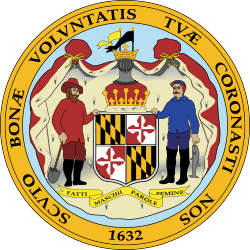| |||||||||||||||||
| |||||||||||||||||
 County results Lane: 50–60% 60–70% Robb: 50–60% 60–70% | |||||||||||||||||
| |||||||||||||||||
| Elections in Maryland |
|---|
 |
The 1930 Maryland attorney general election was held on November 4, 1930, in order to elect the attorney general of Maryland. Democratic nominee William Preston Lane Jr. defeated Republican nominee David A. Robb, Socialist nominee William A. Toole, Labor nominee Word H. Mills and Communist nominee Isidore Samuelson. Incumbent attorney general Thomas H. Robinson had initially been nominated on the Democratic ticket to run for a third term, but died on October 12, 1930. So William Preston Lane Jr. was nominated in his stead for the Democratic ticket. [1]

